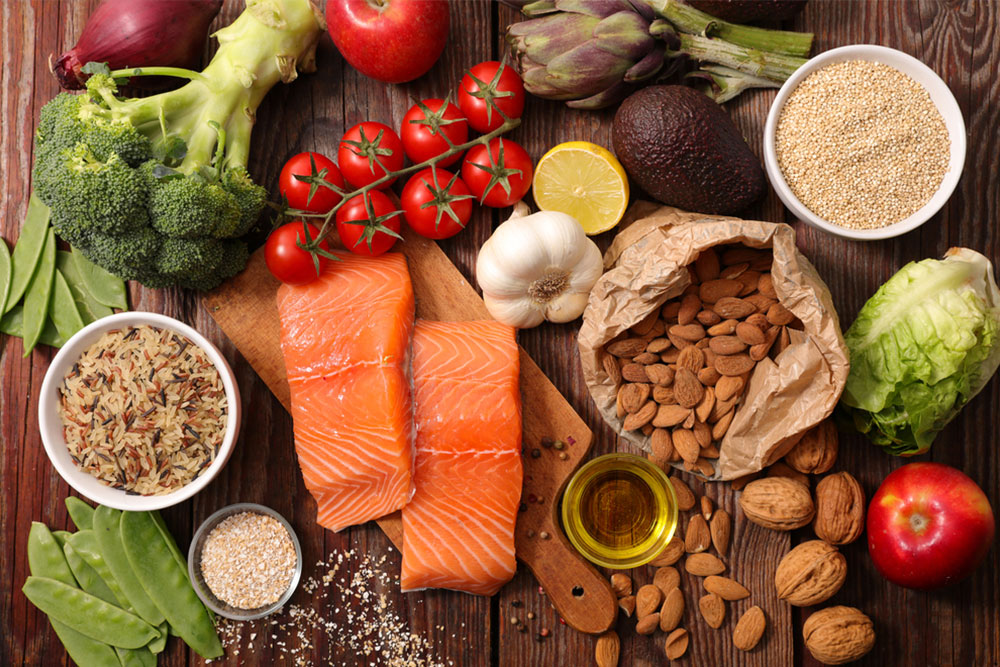Essential Diet Tips for Managing Arthritis Effectively
This article offers practical dietary tips for arthritis management, highlighting foods that reduce inflammation and pain while advising on foods to avoid. Emphasizing a balanced, nutrient-rich diet, it aims to help individuals improve joint health, decrease symptoms, and enhance overall wellness through proper nutrition combined with professional medical guidance.

Effective Eating Habits for Arthritis Relief
Adopting a nutrient-rich diet can significantly ease arthritis symptoms and promote overall health. Proper nutrition helps in weight management, lowering blood pressure, and reducing cholesterol, thereby reducing cardiovascular and stroke risks. Incorporating foods high in Calcium and Vitamin D supports bone repair and fortifies muscles and tissues around affected joints. Here are recommended foods to help manage arthritis and minimize discomfort.
Fatty Fish
Rich in Omega-3 fatty acids, fatty fish such as salmon, tuna, sardines, and mackerel are known for their anti-inflammatory properties. Consuming 3 to 6 servings weekly can help reduce joint swelling. Opt smaller fish to avoid mercury exposure.
Vegetables
A plant-based diet is vital for arthritis management. Vegetables are loaded with antioxidants and vital nutrients. Incorporate colorful choices like broccoli, kale, spinach, carrots, peppers, onions, garlic, and olives into your meals through steaming, stir-frying, or salads—all while preserving their nutrients.
Fruits
Colorful fruits like cherries, strawberries, raspberries, watermelon, grapes, and avocados contain compounds that combat free radicals, boosting your immune system. Aim for 5-6 servings daily.
Whole Grains
Replace refined grains with whole grains such as brown rice, quinoa, buckwheat, and farro. Consuming 3-6 ounces daily supports joint health and reduces inflammation.
Green Tea
Drinking two cups of green tea daily provides antioxidants that may alleviate arthritis-related pain and inflammation. Decaffeinated options are available for caffeine-sensitive individuals.
Nuts and Seeds
Rich in omega-3s, magnesium, and vitamin E, nuts like walnuts, almonds, pistachios, as well as seeds like chia and flaxseed, help fight inflammation. Use them as snacks, garnishes, or in desserts, but be cautious of allergies.
Healthy Oils
Use oils high in unsaturated fats such as olive, avocado, grape seed, walnut, and canola. These oils support heart health and possess anti-inflammatory benefits. Use them for cooking, dressings, or baking.
Certain foods should be limited or avoided as they may worsen arthritis symptoms. These include:
Sugar: Processed sugar can increase inflammation due to cytokine production. Reducing intake requires effort but is beneficial.
Saturated Fats: Found in red meats, dairy, and baked goods, these fats promote inflammation and should be minimized.
Trans Fats & Omega-6s: Present in fried, processed foods, and snacks; they trigger systemic inflammation. Check labels and avoid hydrogenated oils.
Refined Carbohydrates: White bread, cereals, and baked products made with white flour have high glycemic indices that promote inflammation.
Gluten & Casein: In gluten-sensitive individuals, gluten (wheat, barley) and dairy-based casein may cause issues and should be avoided.
Alcohol: Excess alcohol hampers liver function, elevating inflammation levels; moderation or abstinence is recommended.










